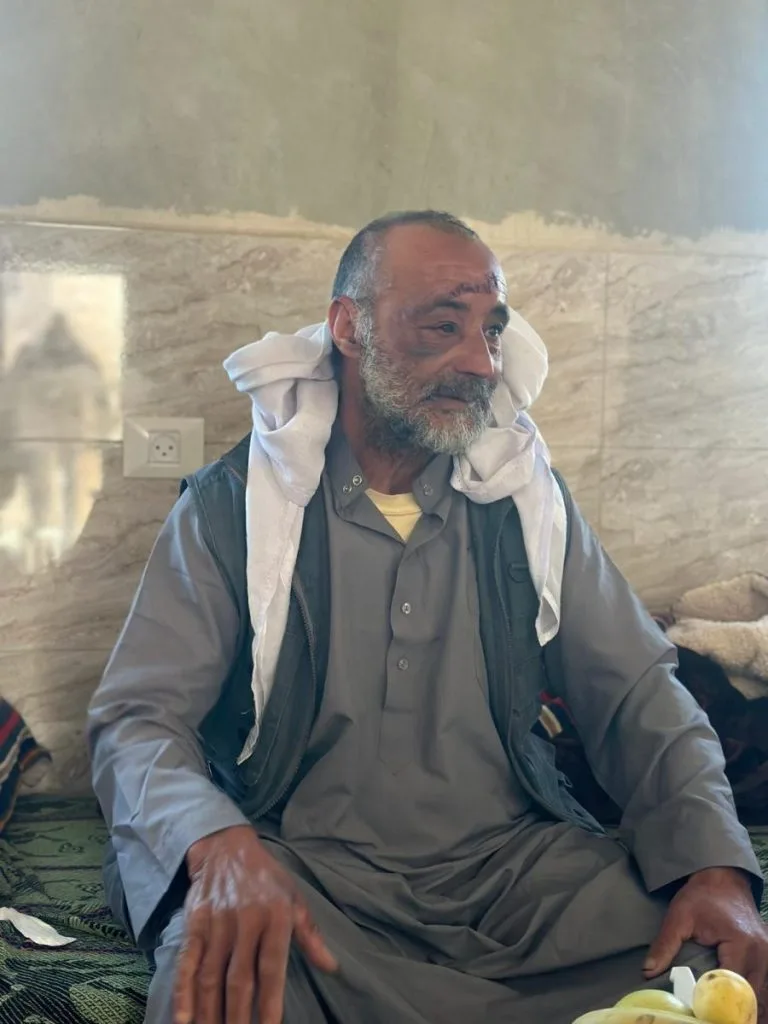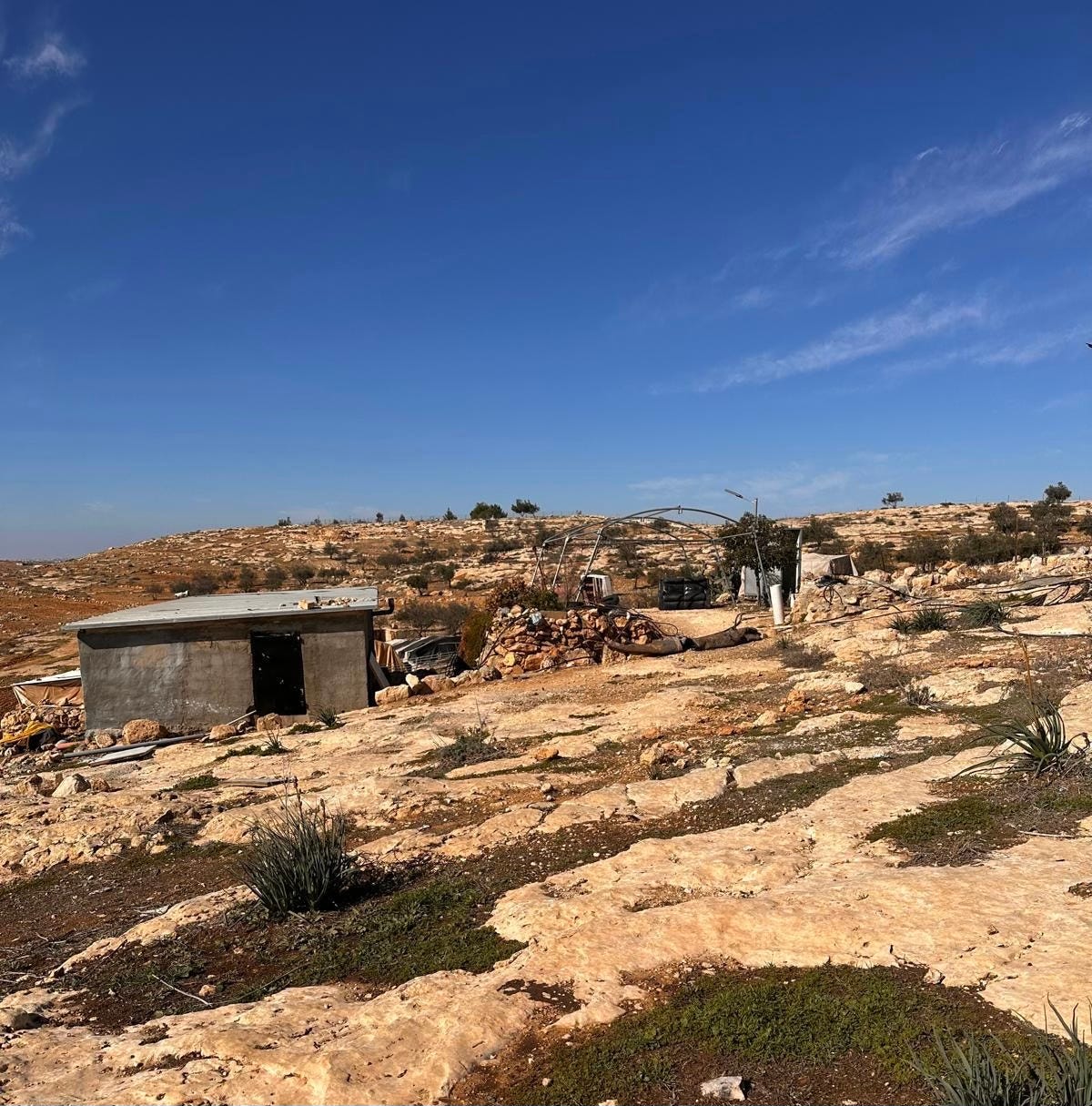
Hamdan Ballal, HUMANS OF MASAFER YATTA, Jan 16, 2025
Settler terrorism and violence against Palestinians in Masafer Yatta continues to increase, and the lack of accountability or legal action gives these extremist settlers greater power and freedom to attack who and whatever they wish.
For example, repeated settler attacks have prevented the Palestinian population from plowing their land or grazing it, and there is no law in the world that holds them accountable for these actions that go against all international laws and norms.
The attacks are an attempt to pressure Palestinians out of Masafer Yatta and into Area A – effectively ethnically cleansing the area, and enabling the settlers to seize all land and property left behind. The village of Susiya, one of several in the region that is regularly targeted, was subjected to more than five such attacks in less than a month.
On 12 December, settlers attacked the village of Susiya and attempted to steal the sheep of Palestinian citizens under the pretext that they had lost their own sheep and believed they had been stolen. They came to the homes of Palestinian citizens, trying to enter the sheep barns by force. Five settlers filmed Nasser Al-Nawaja’s house, headed directly to his sheep barn, broke through the door, and stole his sheep. The Al-Nawaja family, together with a group of international activists who were present, stood firm in trying to prevent the settlers from trespassing.
Shortly after, the police came and spoke with the settlers, asking them what they were doing there. The settlers responded that some of their sheep had been stolen and so they had come to the Palestinians’ homes in order to check if their sheep were there.
The settlers were asked if they’d first made any effort to contact the police. The settlers admitted they hadn’t, but that they’d called the army instead. The policeman immediately told them that he’d checked with the army, and no one had contacted them. Then the policeman asked if the settlers had any evidence or pictures of the sheep they’d lost. One said yes, and the policeman asked him to come with him and enter the barn and see if any of the sheep in the barn corresponded to the picture in the settler’s possession. The policeman said he couldn’t see any sheep here like the sheep in the picture, told the settler he was lying, and ordered him to get out of the barn.
The police arrested four of the settlers – but they were released on the same day. And after the police had arrested those settlers and left, more than 40 other settlers came and scattered throughout the village of Susiya. Some entered my house, and were later joined by four more settlers, one of whom was armed. Shortly after, one of the settlers, dressed in soldier uniform, made physical contact: he immediately directed his weapon towards my family and threatened anyone approaching them that he would shoot.
When the settler-soldier saw a solidarity activist photographing him, he attacked the activist, brought him to the ground and tried to take his phone. When he saw members of my family also filming and documenting what was happening, he retreated and allowed more settlers to enter the sheep barn, threatening to shoot anyone who objected to that. The settlers stole a ewe from the barn and immediately one of my family members took the ewe back from their hands, ignoring the soldier’s threats.
After a while, some more army forces came into my house. We tried to explain what the settlers had done, but the army brushed it off and said they were there simply to prevent any problem between us and the settlers.
What’s more, the army allowed the settlers to sit in the garden of the house. They were not asked to stay away from the house or even prevented from vandalizing property and trees in the garden. My family was soon joined by a larger group of foreign and Israeli solidarity activists, as well as other villagers. After over two hours, a force of border police came, at which point, most of the settlers left, except for three who remained. The border police surrounded my family and asked the army commander to announce a closed military order for the area (i.e. my house). After 30 minutes, the army announced a closed military order and asked all those present except the residents of the house to leave the area in less than 10 minutes. And indeed everyone left and my family remained in the house where we were told not to leave.

A few weeks later, on 3 January, just across the road from Susiya, in the village of Qawawis, settlers attacked and severely beat Khaled Musa Al-Najjar, a 72-year-old man. They assaulted him with sticks and sharp objects, leading to facial fractures and deep wounds in his head that required more than 17 stitches and a three-day stay in intensive care.
Khaled Al-Najjar told me that at exactly 3:45 am, he woke up to the sound of dogs outside, and went to see what was there. “I looked around the house and the sheep barn and I didn’t see anything, so I came home, but I heard the dogs, their barking was very loud, and so I went out again and looked around the house with a flashlight. When I was about 20 meters away from the house, suddenly a settler appeared wearing a mask on his face, and told me to come to him. I asked him what he was doing so close to my house, and told him to get away from here.
Suddenly other settlers appeared – they had been lying on the ground, and when they stood up, they started beating me in a terrifying manner. I was screaming from the intensity of the pain. They kept beating me for more than 10 minutes. After that, they went to the settlement of Mitzpe Yair, and I struggled to walk home, as I felt severe pain in my head and all over my body.
When I got home, I sat on the floor and didn’t feel anything after that. My family transferred me to the hospital for treatment and I stayed in the hospital for three days in intensive care. I got out of the hospital today. I am here in my house and I will never leave it, even if I die in my house on my land. It is better than running away. I will not give up my right to live either and I will not allow anyone to get me out of my land by force. I do not have the strength to defend myself but I have the will to defend my house and my family and my presence in my land and my house. This is what I can do for survival and for my existence. I will survive and stay.”
Al-Najjar added that he has known this violence very well for a very long time. He told me that in 2001, “while I was working on my land, an armed settler attacked me and shot me and seriously injured my stomach. I almost lost my life. I was taken to the hospital and underwent rapid surgery because my stomach was damaged, but I walked out of the hospital on my feet, and here I am in my house until today in the village of Qawawis and I will not leave my house as long as I am alive.”
Settler violence is increasing daily and has become more extreme because there is no deterrent to it and there is no respect for humanity: only violence and terrorism against the Palestinians in Masafer Yatta. Today, Palestinians need international protection from the countries that have developed human rights laws for the protection of civilians, and from the countries that have established international law for the protection of human beings. I just want to see these laws applied on the ground, not only on paper.
Humans of Masafer Yatta is free today. But if you enjoyed this post, you can tell Humans of Masafer Yatta that their writing is valuable by pledging a future subscription. You won’t be charged unless they enable payments.
Leave a Reply
You must be logged in to post a comment.